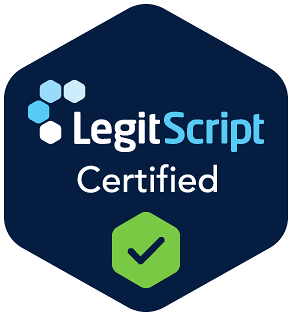If you’re reading this and you’re struggling with addiction—know this first: you are not alone, and help is available. Whether it's drugs, alcohol, prescription medication, or even behaviors like gambling or compulsive eating, addiction can feel overwhelming and isolating. But recognizing the problem is the first powerful step toward healing. Here's a practical and compassionate guide on what to do if you're struggling with addiction.
Step 1: Acknowledge the Problem
Admitting that you're struggling takes courage. Addiction often brings shame, guilt, or denial—but facing it head-on is the first act of strength. You don’t need to have everything figured out right away. Just acknowledging that your behavior is harming your health, relationships, or peace of mind is a brave start.
Ask yourself:
• Is my substance use or behavior affecting my relationships or work?
• Do I feel out of control or unable to stop on my own?
• Have I tried quitting before but relapsed?
If you answered "yes," it may be time to seek help.
Step 2: Talk to Someone You Trust
You don’t have to suffer in silence. Reach out to someone you trust—whether it’s a family member, friend, spiritual advisor, or mentor. Just expressing how you feel can provide relief and open the door to support.
If you’re afraid to talk to someone in your personal life, consider reaching out to a support hotline or addiction counselor. These conversations are confidential and judgment-free.
Step 3: Seek Professional Help
Addiction isn’t just a lack of willpower—it’s a complex condition that often requires medical and psychological support. Professionals can help you understand the root causes of your addiction and recommend a personalized treatment plan.
Your options might include:
• Detox programs: Supervised medical care to safely manage withdrawal.
• Inpatient rehab: Live-in treatment programs with 24/7 support.
• Outpatient programs: Therapy and treatment while you live at home.
• Therapy or counseling: One-on-one sessions with licensed therapists who specialize in addiction.
Step 4: Join a Support Group
Recovery is easier when you’re not doing it alone. Groups like Alcoholics Anonymous (AA), Narcotics Anonymous (NA), or SMART Recovery offer safe spaces to connect with others who understand what you're going through.
Support groups provide:
• A sense of community
• Accountability
• Real-life stories of hope and success
• Tools for coping with cravings and triggers
Step 5: Replace Destructive Habits with Healthy Ones
Addiction often fills a void—whether it’s stress relief, emotional pain, boredom, or trauma. Replacing the addictive behavior with positive coping strategies is key to long-term recovery.
Try activities that build you up:
• Exercise
• Meditation or yoga
• Creative outlets (art, music, writing)
• Volunteering
• Spending time with supportive friends or family
Step 6: Be Patient with Yourself
Recovery is a process, not a straight line. There may be relapses, setbacks, and hard days—but that doesn’t mean you’ve failed. What matters is that you keep showing up for yourself and asking for help when you need it.
Progress is progress, even if it’s slow. Celebrate small victories—every sober day, every honest conversation, every therapy session.
Step 7: Create a Safe and Supportive Environment
If possible, remove temptations and triggers from your home. Let people around you know about your commitment to recovery so they can help protect your space and peace of mind. The more stable your environment, the stronger your foundation for healing.
Final Thoughts
Struggling with addiction doesn’t mean you're weak—it means you’re human. And like all humans, you deserve support, compassion, and a chance to build a better life.
There is no shame in asking for help. In fact, it’s one of the most powerful and life-changing decisions you can make. Whether it’s today or tomorrow, taking that first step could be the beginning of a whole new chapter.
If you or someone you love is struggling, don’t wait. Help is out there, and recovery is absolutely possible. You are not alone—and you never have to be again.





.webp)
.webp)